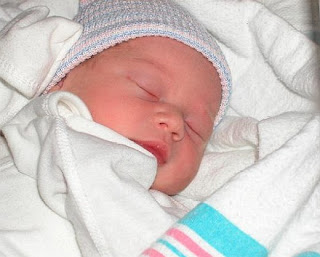Young children who get most of their sleep at night perform better in executive functioning than children who don't sleep as much at night, a new study finds. The study of 60 Canadian children aged 1, 1-1/2 and 2, examined the children's sleep habits and executive functioning skills, including impulse control and mental flexibility. The researchers found that children who sleep mostly at night did better on executive function tasks, especially those involving impulse control.
At ages 1 and 1-1/2, children who get most of their sleep at night (as opposed to during the day) do better in a variety of skill areas than children who don't sleep as much at night.
That's the finding of a new longitudinal study conducted by researchers at the University of Montreal and the University of Minnesota. The research appears in the November/December 2010 issue of the journal Child Development.
The study, of 60 Canadian children at ages 1, 1-1/2, and 2, looked at the effects of infants' sleep on executive functioning. Among children, executive functioning includes the ability to control impulses, remember things, and show mental flexibility. Executive functioning develops rapidly between ages 1 and 6, but little is known about why certain children are better than others at acquiring these skills.
"We found that infants' sleep is associated with cognitive functions that depend on brain structures that develop rapidly in the first two years of life," explains Annie Bernier, professor of psychology at the University of Montreal, who led the study. "This may imply that good nighttime sleep in infancy sets in motion a cascade of neural effects that has implications for later executive skills."
When the infants were 1 year old and 1-1/2 years old, their mothers filled out three-day sleep diaries that included hour-by-hour patterns, daytime naps, and nighttime wakings. When the children were 1-1/2 and 2, the researchers measured how the children did on the skills involved with executive functioning.
Children who got most of their sleep during the night did better on the tasks, especially those involving impulse control. The link between sleep and the skills remained, even after the researchers took into consideration such factors as parents' education and income and the children's general cognitive skills. The number of times infants woke at night and the total time spent sleeping were not found to relate to the infants' executive functioning skills.
"These findings add to previous research with school-age children, which has shown that sleep plays a role in the development of higher-order cognitive functions that involve the brain's prefrontal cortex," according to Bernier.


No comments:
Post a Comment